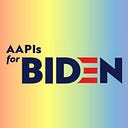A Turning Point: Anti-Blackness in the Asian American Community
The image of Minneapolis police officer Tou Thao turning his back as his colleague murdered George Floyd reminds us that Asian Americans must confront racial injustice. Like Thao, many of us have turned our backs on Black Americans’ pain, whether to protect our privilege or mind our own business. But we too experience discrimination, most recently as the “Yellow Peril” blamed for bringing COVID-19 to the US. The Asian American population is vast and diverse, but Thao’s behavior demonstrates two things that bind us — our complicity in, and experience of, racism. This duality paves the way for our community to reshape itself for the better.
From a young age, countless Asians are taught that dark skin is inferior in appearance and demeanor. Discriminatory ideas like these evolved during imperial rule and are passed down like family heirlooms. Many Asians’ past oppression underpins their anti-Blackness today.
It takes many forms. Thao, for instance, was not the first of us to engage in police brutality. In 2014, Peter Liang, an NYPD officer, was convicted of negligent homicide after killing Black father Akai Gurley. Many Asian Americans defended Liang while ignoring his crime.
Of course, we experience discrimination ourselves. The “model minority” myth purports that Asians’ diligence, politeness, and subservience earns their prosperity and Blacks deserve their deprivation. Along with discrediting the culture, talents, and efforts of Black people, this notion ignores alarming realities shared by Asian Americans, for instance that we have become the most economically unequal ethnic group in America.[1]
We are not immune to abuse. In 1982, Chinese-American draftsman Vincent Chin was murdered by two white autoworkers. In 2015, Indian-American grandfather Sureshbhai Patel was slammed to the ground by an Alabama officer after neighborhood residents alleged “suspicious behavior.” Recently, COVID-19 has corresponded with a rise in hate crimes against Asians accused of spreading the “Chinese Virus.”[2]
This dichotomy leaves us with a tall order. We can begin by understanding the racist beliefs and behaviors reinforced by our community. We should then apply that knowledge to our lives, whether by educating a parent about the harmful effects of skin whitening cream, asking a neighbor to refrain from using a racial slur, or boycotting a brand that relies on anti-Black tropes.
We must also band together to unlearn our discriminatory ideas. As Young Asian Americans and Pacific Islanders for Biden, we organize events about topics like colorism, hate speech, and xenophobia. We assign these efforts the same importance as run-of-the-mill campaign activities like phone-banking and fundraising. The conversations are difficult, and they are uncomfortable for many, but the anti-Blackness in our community makes them necessary. They bring our politics closer to everyday life — our contribution to restoring the soul of the nation.
Asian Americans should join the broader march to justice. Here, we can follow in the footsteps of leaders such as Shyamala Gopalan. A first-generation immigrant to the United States, cancer researcher Gopalan experienced discrimination as both an Indian American and a woman in a white-, male-dominated field. Dismayed by this injustice, she joined the civil rights movement, taking her daughter to protests in a stroller. The daughter’s name was Kamala Harris.
Like Gopalan, we must tap into our own experiences with racism to demand systemic change. Our economy is stacked against Black, Hmong, and other Americans. Our law enforcement officers have committed tragic crimes against minorities and all too often been let off the hook. Due to a flawed healthcare system, both African and Asian Americans have higher uninsured rates than whites.[3] As acknowledged in Vice President Biden’s Vision for America, these are just some parts of the status quo that we can no longer accept.[4]
By dismantling their anti-Blackness and demanding systemic change, Asian Americans can bring out the best in themselves, their community, and this country.
We will struggle to transform in this way if we shirk our duties in November. As Stacey Abrams notes, “voting is a first step in a long and complex process, tedious but vital.”[5] It is vital because Donald Trump legitimizes hatred against Asian Americans. It is vital because his administration shows an utter disregard for the interests of Black America. It is vital because Trump and his colleagues demonstrate a dangerous inability to lead our nation. This list goes on, and through ceaseless activism, many Asian Americans are helping to put an end to it. By voting in November, all of us can.
[1] https://www.pewsocialtrends.org/2018/07/12/income-inequality-in-the-u-s-is-rising-most-rapidly-among-asians/
[2] https://eu.usatoday.com/story/news/politics/2020/05/20/coronavirus-hate-crimes-against-asian-americans-continue-rise/5212123002/
[3] https://www.americanprogress.org/issues/race/reports/2020/05/07/484742/health-disparities-race-ethnicity/
[4] https://joebiden.com/joes-vision-3/
[5] https://www.nytimes.com/2020/06/04/opinion/stacey-abrams-voting-floyd-protests.html
